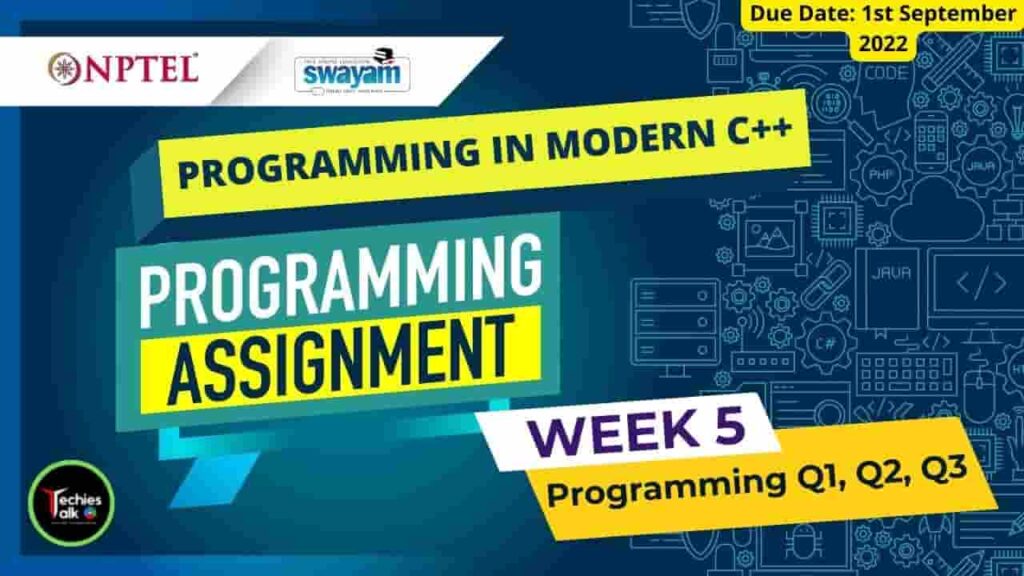
There has been a continual debate on which programming language/s to learn, to use. As the latest TIOBE Programming Community Index for August 2021 indicates – C (13%), Python (12%), C++ (7%), Java (10%), and C#(5%) together control nearly half the programming activities worldwide. Further, C Programming Language Family (C, C++, C#, Objective C etc.) dominate more than 25% of activities. Hence, learning C++ is important as one learns about the entire family, about Object-Oriented Programming and gets a solid foundation to also migrate to Java and Python as needed. C++ is the mother of most general purpose of languages. It is multi-paradigm encompassing procedural, object-oriented, generic, and even functional programming. C++ has primarily been the systems language till C++03 which punches efficiency of the code with the efficacy of OOP. Then, why should I learn it if my primary focus is on applications? This is where the recent updates of C++, namely, C++11 and several later offer excellent depths and flexibility for C++ that no language can match. These extensions attempt to alleviate some of the long-standing shortcomings for C++ including porous resource management, error-prone pointer handling, expression semantics, and better readability. The present course builds up on the knowledge of C programming and basic data structure (array, list, stack, queue etc.) to create a strong familiarity with C++98 / C++03. Besides the constructs, syntax and semantics of C++ (over C), we also focus on various idioms of C++ and attempt to go to depth with every C++ feature justifying and illustrating them with several examples and assignment problems. On the way, we illustrate various OOP concepts. The course also covers important advances in C++ 11 and later released features..
Programming In Modern C++ Week 5 Programming Assignment.
INTENDED AUDIENCE : Any interested audience
PREREQUISITES : 10th standard/high school
INDUSTRY SUPPORT : Programming in C++ is so fundamental that all companies dealing with systems as well as application development (including web, IoT, embedded systems) have a need for the same. These include – Microsoft, Samsung, Xerox, Yahoo, Oracle, Google, IBM, TCS, Infosys, Amazon, Flipkart, etc. This course would help industry developers to be up-to-date with the advances in C++ so that they can remain at the state-of-the-art.
Course Layout
Programming Assignment Q1
#include<iostream>
using namespace std;
class Area{
public:
double getVal(int x, int y){ return (x*y); }
};
class Perimeter{
public:
double getVal(int x, int y){ return (2*(x+y)); }
};
class Rectangle : public Area, public Perimeter{ //LINE-1
int x, y;
public:
Rectangle(int _x, int _y) : x(_x), y(_y){ }
double getArea(){ return Area::getVal(x,y); } //LINE-2
double getPerimeter(){ return Perimeter::getVal(x,y); } //LINE-3
};
int main(){
int a, b;
cin >> a >> b;
Rectangle r(a,b);
cout << r.getArea() << ", " << r.getPerimeter();
return 0;
}
Programming Assignment Q2
#include<iostream>
using namespace std;
class B1{
protected:
int b1;
public:
B1(int b) : b1(b){}
};
class B2{
protected:
int b2;
public:
B2(int b) : b2(b){}
};
class D : public B1, public B2{ //LINE-1
int d;
public:
D(int x) : d(x), B1(x+2), B2(x+4) {} //LINE-2
void show(){
cout << d << ", " << b1 << ", " << b2;
}
};
int main(){
int x;
cin >> x;
D t1(x);
t1.show();
return 0;
}
Programming Assignment Q3
#include<iostream>
using namespace std;
class Step{
int a;
public:
Step(int _a = 0);
int sum();
};
class Step1 : public Step{
int b;
public:
Step1(int _a = 0, int _b = 0);
int sum();
};
class Step2 : public Step1{
int c;
public:
Step2(int _a = 0, int _b = 0, int _c = 0);
int sum();
};
Step::Step(int _a) : a(_a) {} //LINE-1
Step1::Step1(int _a, int _b) : Step(_a), b(_b) {} //LINE-2
Step2::Step2(int _a, int _b, int _c) : Step1(_a,_b), c(_c) {} //LINE-3
int Step::sum(){ return a; } //LINE-4
int Step1::sum(){ return Step::sum() + b; } //LINE-5
int Step2::sum(){ return Step1::sum() + c; } //LINE-6
int main(){
int a, b, c;
cin >> a >> b >> c;
Step aObj(a);
Step1 bObj(a, b);
Step2 cObj(a, b, c);
cout << aObj.sum() << ", " << bObj.sum() << ", " << cObj.sum();
return 0;
}